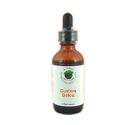 Arthropod/Vector
Bacteria
Chemicals
Fungus /Mold
/ Yeast Metals Parasites Virus Other Arthropod/Vector
Bacteria
Chemicals
Fungus /Mold
/ Yeast Metals Parasites Virus Other
|
Poliovirus
Paralytic poliomyelitis (polio) occurs in less than 1% of poliovirus infections. Paralytic disease occurs when the virus enters the central nervous system (CNS) and replicates in motor neurons within the spinal cord, brain stem, or motor cortex, resulting in the selective destruction of motor neurons leading to temporary or permanent paralysis. In rare cases, paralytic poliomyelitis leads to respiratory arrest and death. In cases of paralytic disease, muscle pain and spasms are frequently observed prior to onset of weakness and paralysis. Paralysis typically persists from days to weeks prior to recovery. Poliovirus uses two key mechanisms to evade the immune system. First, it is capable of surviving the highly acidic conditions of the gastrointestinal tract allowing the virus to infect the host and spread throughout the body via the lymphatic system. Second, because it can replicate very quickly, the virus overwhelms the host organs before an immune response can be mounted. Individuals who are exposed to poliovirus, either through infection or by immunization with polio vaccine, are thought to develop immunity. In immune individuals, antibodies against poliovirus are present in the tonsils and gastrointestinal tract (specifically IgA antibodies) and are able to block poliovirus replication. IgG and IgM antibodies against poliovirus can prevent the spread of the virus to motor neurons of the central nervous system. Infection with one serotype of poliovirus does not provide immunity against the other serotypes, however, second attacks within the same individual are extremely rare. Note that certain studies have shown that more people have contracted the polio disease from the vaccine than would have contracted it from natural exposure. When the vaccine is given, the human immune system takes an overwhelming hit and in that low condition cannot contain the polio that has just been implanted into the body. |
|


